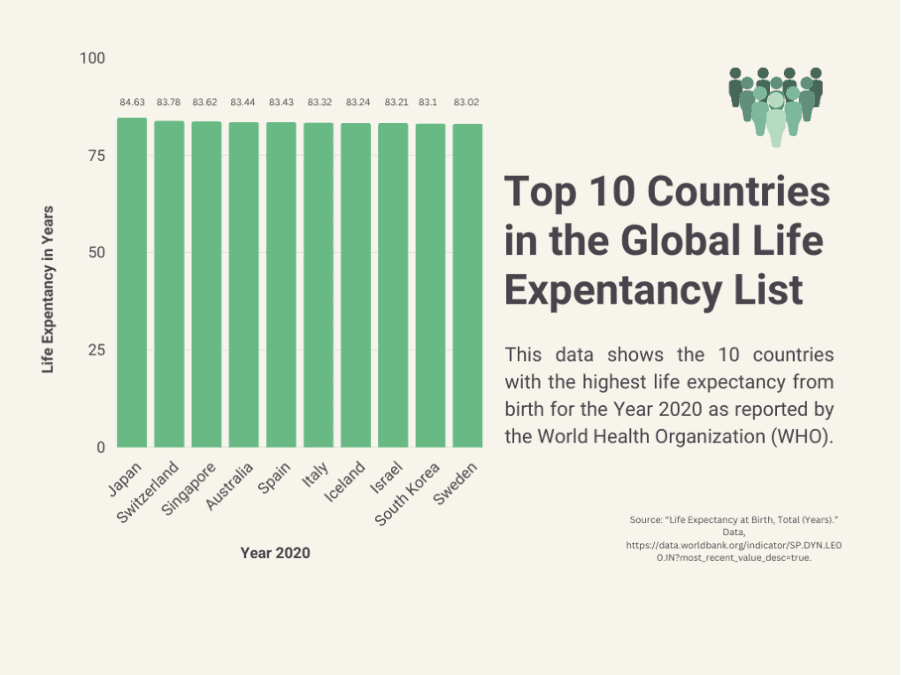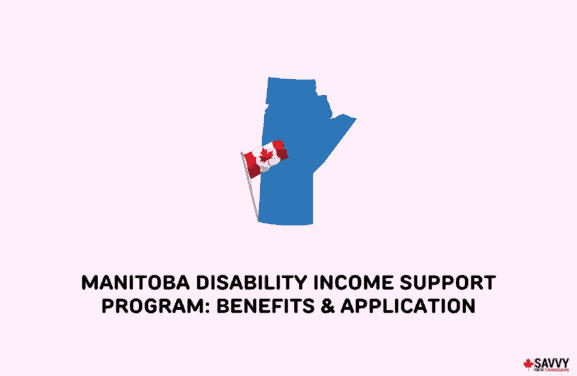Life expectancy is the estimated number of years a person can expect to live based on current age, health conditions, and other factors.
In Canada, life expectancy has steadily increased over the past few decades. In this article, we will explore the average life expectancy in Canada, how it compares to other countries, and how it has changed over time.
Key Takeaways
- Canada’s average life expectancy is 82 years old, with women living slightly longer than men.
- Factors contributing to Canada’s high life expectancy include quality healthcare, education, and lifestyle.
- Life expectancy in Canada has been increasing since the 1920s, with the biggest increase in recent decades.
- Canada ranks among the top 25 countries in life expectancy globally.
- Japan has the highest life expectancy as of 2020, at 84.63 years old.
What is the Average Life Expectancy in Canada?
The average life expectancy in Canada is 82 years as of 2020, according to the latest records. This is one of the highest life expectancies in the world, and it has been steadily increasing over the past few decades.
Females have a longer life expectancy than males, with an average of 84 years compared to 80 years for males.
Life Expectancy in Canada by Gender
As mentioned earlier, females have a higher life expectancy than males in Canada. In 2020, the life expectancy for females was 84 years, while for males, it was 80 years.
This difference can be attributed to various factors, such as lifestyle choices, genetics, and healthcare.
Life Expectancy in Canada Since 1901
Over the past century, life expectancy in Canada has increased significantly.
In 1901, the average life expectancy was only 48.63 years, which means that people today are living around 30 years longer than they did a century ago.
The following table shows the average life expectancy in Canada for every ten years since 1901:
| Year | At birth | At age 90 |
| 1901 | 48.63 | No data available |
| 1911 | 52.51 | No data available |
| 1921 | 57.1 | 93.4 |
| 1922 | 57.9 | 93.2 |
| 1923 | 58.3 | 93.1 |
| 1924 | 58.9 | 93.1 |
| 1925 | 59.1 | 93.1 |
| 1926 | 59 | 93.1 |
| 1927 | 58.7 | 92.9 |
| 1928 | 58.8 | 92.9 |
| 1929 | 59.1 | 92.9 |
| 1930 | 59.8 | 93.2 |
| 1931 | 60.9 | 93.2 |
| 1932 | 61.9 | 93.2 |
| 1933 | 62.5 | 93.3 |
| 1934 | 62.7 | 93.6 |
| 1935 | 62.8 | 93.8 |
| 1936 | 62.4 | 93.8 |
| 1937 | 62.8 | 93.9 |
| 1938 | 63.2 | 93.9 |
| 1939 | 64.1 | 93.7 |
| 1940 | 64.3 | 93.4 |
| 1941 | 64.6 | 93.1 |
| 1942 | 64.7 | 93 |
| 1943 | 65.1 | 93 |
| 1944 | 65.6 | 93 |
| 1945 | 66.1 | 93.2 |
| 1946 | 66.7 | 93.6 |
| 1947 | 67.2 | 93.7 |
| 1948 | 67.4 | 93.5 |
| 1949 | 67.9 | 93.5 |
| 1950 | 68.1 | 93.5 |
| 1951 | 68.4 | 93.4 |
| 1952 | 68.7 | 93.4 |
| 1953 | 69.2 | 93.5 |
| 1954 | 69.7 | 93.5 |
| 1955 | 70 | 93.5 |
| 1956 | 70 | 93.5 |
| 1957 | 70.2 | 93.5 |
| 1958 | 70.3 | 93.4 |
| 1959 | 70.6 | 93.5 |
| 1960 | 70.8 | 93.4 |
| 1961 | 71 | 93.6 |
| 1962 | 71.1 | 93.6 |
| 1963 | 71.3 | 93.8 |
| 1964 | 71.4 | 93.9 |
| 1965 | 71.6 | 93.9 |
| 1966 | 71.7 | 93.7 |
| 1967 | 71.9 | 93.6 |
| 1968 | 72.1 | 93.7 |
| 1969 | 72.3 | 93.8 |
| 1970 | 72.5 | 94 |
| 1971 | 72.8 | 94.2 |
| 1972 | 72.9 | 94.2 |
| 1973 | 73 | 94.2 |
| 1974 | 73.2 | 94.3 |
| 1975 | 73.5 | 94.4 |
| 1976 | 73.9 | 94.7 |
| 1977 | 74.2 | 94.7 |
| 1978 | 74.6 | 94.8 |
| 1979 | 74.9 | 94.8 |
| 1980 | 75.2 | 94.7 |
| 1981 | 75.5 | 94.6 |
| 1982 | 75.8 | 94.6 |
| 1983 | 76.1 | 94.6 |
| 1984 | 76.3 | 94.6 |
| 1985 | 76.4 | 94.5 |
| 1986 | 76.6 | 94.5 |
| 1987 | 76.8 | 94.6 |
| 1988 | 77 | 94.5 |
| 1989 | 77.2 | 94.6 |
| 1990 | 77.5 | 94.7 |
| 1991 | 77.7 | 94.8 |
| 1992 | 77.8 | 94.8 |
| 1993 | 77.9 | 94.8 |
| 1994 | 77.9 | 94.7 |
| 1995 | 78.1 | 94.6 |
| 1996 | 78.3 | 94.5 |
| 1997 | 78.5 | 94.4 |
| 1998 | 78.7 | 94.4 |
| 1999 | 78.9 | 94.4 |
| 2000 | 79.2 | 94.4 |
| 2001 | 79.4 | 94.4 |
| 2002 | 79.6 | 94.5 |
| 2003 | 79.9 | 94.6 |
| 2004 | 80.1 | 94.6 |
| 2005 | 80.3 | 94.6 |
| 2006 | 80.5 | 94.6 |
| 2007 | 80.7 | 94.7 |
| 2008 | 80.9 | 94.7 |
| 2009 | 81.2 | 94.8 |
| 2010 | 81.5 | 94.9 |
| 2011 | 81.7 | 95.3 |
Life Expectancy by Country
Canada is one of the countries with the highest life expectancy in the world. According to the World Health Organization, the top ten countries with the highest life expectancy as of 2020 are the following:

What is the Country With the Highest Life Expectancy?
Japan has the highest life expectancy in the world, with an average of 84.6 years. Several things, like diet, lifestyle, and health care, may account for this.
Canada Life Expectancy by Race
There is no reliable data available on life expectancy in Canada by race. Yet studies show that the life expectancy of Indigenous people in Canada is lower than that of non-Indigenous people.
Some of the reasons for this can be traced back to the impacts of colonization, racism, and intergenerational trauma on Indigenous peoples. First Nations, Métis, and Inuit populations are disadvantaged relative to the non-Indigenous population in many social determinants of health.
FAQs
The average life expectancy for Canadian males is 80 years old.
Canada’s high life expectancy is due to things like free healthcare for everyone, easy access to good education, and a generally healthy way of life.
The chances of living to be 80 depend on things like genes, how you live your life, and how easy it is to get medical care. However, as of 2021, the life expectancy for Canadians is 82 years old.
As of 2021, the country with the lowest life expectancy is the Central African Republic, with an average life expectancy of just 53 years.
Yes, Canadians tend to live longer than Americans on average. As of 2021, the life expectancy in Canada is 82 years old, while in the United States, it is 77 years old.
Related:



